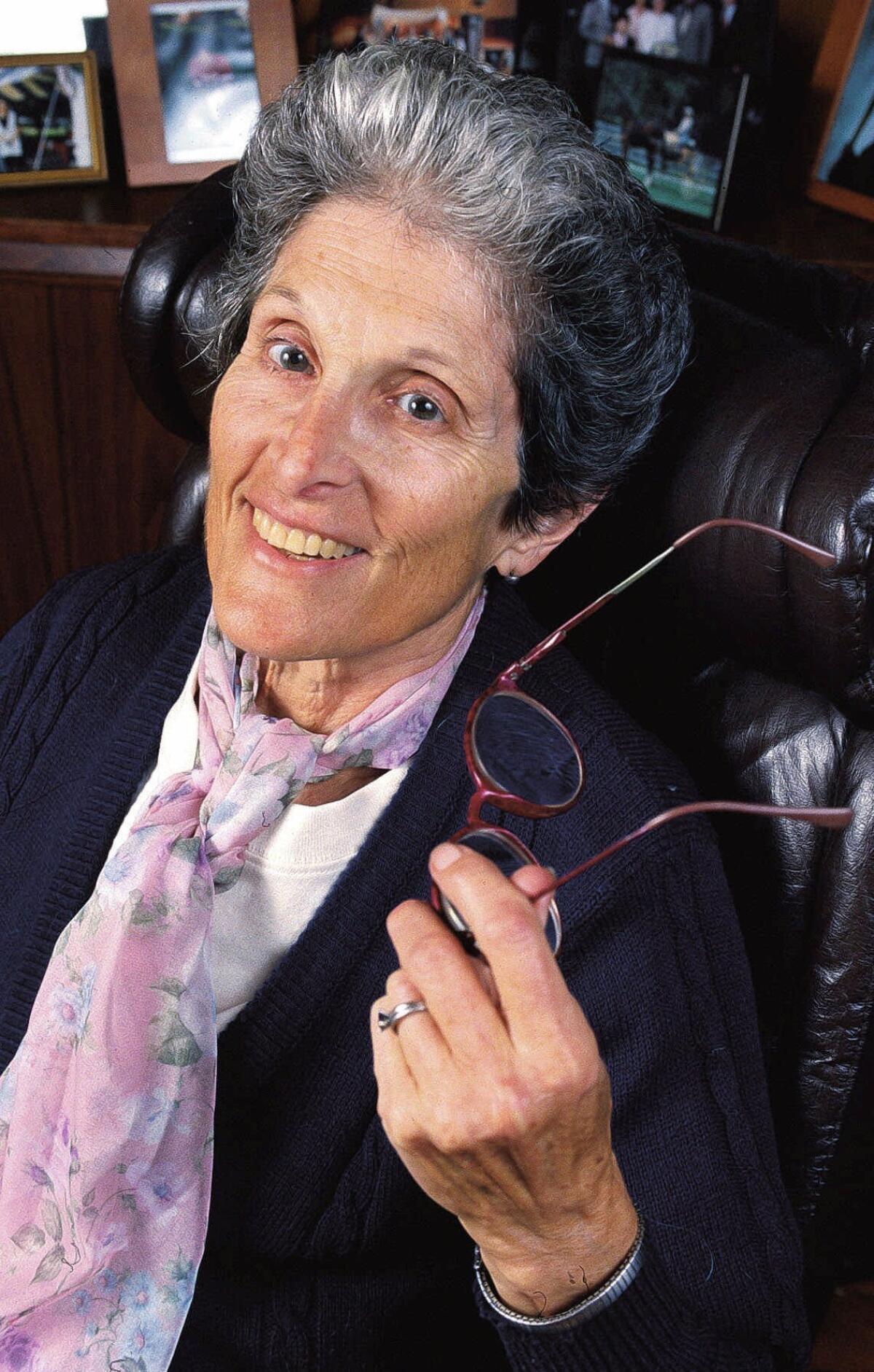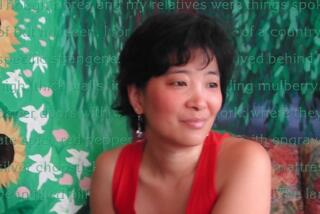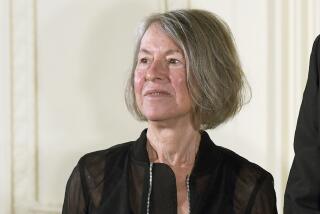Maxine Kumin: Carol Muske-Dukes pays tribute

- Share via
Maxine Kumin, Adrienne Rich, Sylvia Plath and Anne Sexton were all approximate contemporaries. With Kumin’s death at age 88 on Feb. 6, we have lost the last “member” of this august sisterhood of poets.
Rich met Plath in Cambridge, Mass., in the 1950s and excited Plath’s mild envy: Plath described Rich in her journal as “forthright” and “even opinionated” -- the two were rivals. Kumin and Sexton were close friends. Sexton’s poetry turned on the energies of self-immolation; Rich’s searching feminism turned on ideas of revolution. Yet Kumin’s vision of feminism, duty, family and hard work -- plus her unflinching “forthright opinions”-- provided her with a bold, life-affirming style, a rebuttal of despair.
Kumin wrote deceptively straightforward poems. The “below surface” artistry of these poems lay in their ability to transform familiar experience to precisely calibrated insights, couched in a quietly elegant style. She served up tart helpings of pure joy -- but she could do “dark” as well as the gloomiest poets. She eschewed sentimentality, confronting, in terse New England syllables, the uses of excess. Her naturalism was, as she said in a poem, “in the manner of a homely/ brood mare/who throws good colts.”
Kumin won the Pulitzer Prize, she wrote blazing essays, she was U.S. poet laureate before the term was invented -- and more recently, poet laureate of New Hampshire, where she lived on a farm and raised horses and vegetables for many years.
I knew her just a little -- she was generous, funny and no-nonsense -- not intimidating but absolutely sure of herself, her gravity and grace. She famously resigned (along with another canonical poet, Carolyn Kizer) from the Academy of American Poets chancellorship over a decided lack of diversity among the ranks. She was brave in the face of adversity; after a terrible horse and carriage accident that broke her neck and ribs, she fought her way back to life.
Now, as the cliche goes, she will live on in her poems. In this case, the cliche is accurate -- Maxine Kumin’s poems renew themselves with each reading. They are that un-bowable, that life-filled. Like that mare, “throwing good colts,” the poems know the seasons of farm life, know the cycles, keep the wheel turning -- birth-death -- the long learned way home.
Muske-Dukes is the author of several books of poems and novels, as well as professor of English/creative writing at USC and founder of the PhD program in literature and creative writing there.
ALSO:
Pulitzer-winning poet Maxine Kumin dies at 88
Remembering poet Wanda Coleman, a force of nature
Emily Dickinson’s ‘Gorgeous Nothings’ shows the poet’s hand
More to Read
Sign up for our Book Club newsletter
Get the latest news, events and more from the Los Angeles Times Book Club, and help us get L.A. reading and talking.
You may occasionally receive promotional content from the Los Angeles Times.










